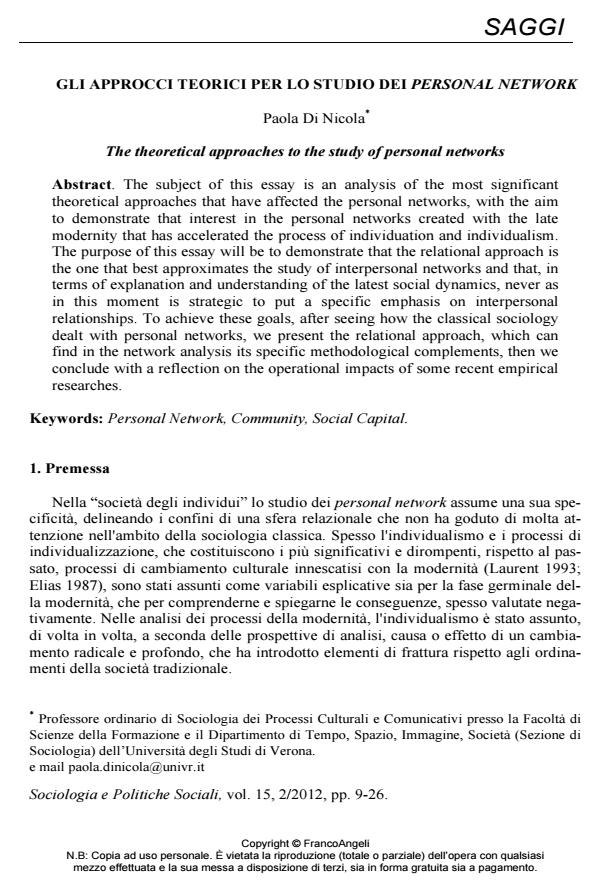Gli approcci teorici per lo studio dei personal network
Titolo Rivista SOCIOLOGIA E POLITICHE SOCIALI
Autori/Curatori Paola Di Nicola
Anno di pubblicazione 2012 Fascicolo 2012/2 Lingua Italiano
Numero pagine 18 P. 9-26 Dimensione file 519 KB
DOI 10.3280/SP2012-002002
Il DOI è il codice a barre della proprietà intellettuale: per saperne di più
clicca qui
Qui sotto puoi vedere in anteprima la prima pagina di questo articolo.
Se questo articolo ti interessa, lo puoi acquistare (e scaricare in formato pdf) seguendo le facili indicazioni per acquistare il download credit. Acquista Download Credits per scaricare questo Articolo in formato PDF

FrancoAngeli è membro della Publishers International Linking Association, Inc (PILA)associazione indipendente e non profit per facilitare (attraverso i servizi tecnologici implementati da CrossRef.org) l’accesso degli studiosi ai contenuti digitali nelle pubblicazioni professionali e scientifiche
The subject of this essay is an analysis of the most significant theoretical approaches that have affected the personal networks, with the aim to demonstrate that interest in the personal networks created with the late modernity that has accelerated the process of individuation and individualism. The purpose of this essay will be to demonstrate that the relational approach is the one that best approximates the study of interpersonal networks and that, in terms of explanation and understanding of the latest social dynamics, never as in this moment is strategic to put a specific emphasis on interpersonal relationships. To achieve these goals, after seeing how the classical sociology dealt with personal networks, we present the relational approach, which can find in the network analysis its specific methodological complements, then we conclude with a reflection on the operational impacts of some recent empirical researches.;
Keywords:Personal Network, Community, Social Capital.
Paola Di Nicola, Gli approcci teorici per lo studio dei personal network in "SOCIOLOGIA E POLITICHE SOCIALI" 2/2012, pp 9-26, DOI: 10.3280/SP2012-002002